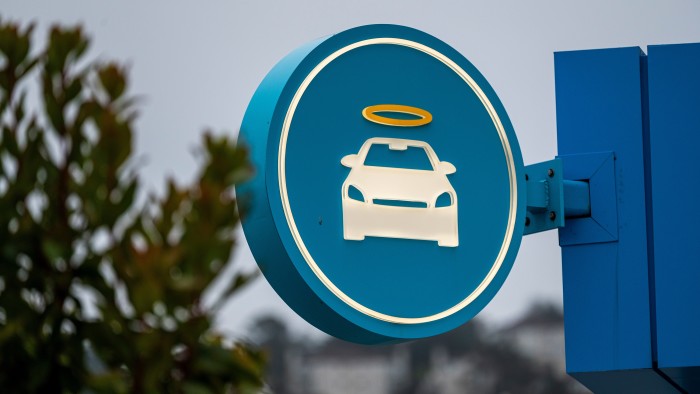Unlock the Editor’s Digest for free
Roula Khalaf, Editor of the FT, selects her favourite stories in this weekly newsletter.
Is selling cars better than offering them to rent? Hertz and Carvana were big winners during the pandemic car shortage and the immediate aftermath. But in the past two years, they have driven off in different directions.
After flirting with bankruptcy, Carvana, the online seller of used cars, has seen its shares rocket from $4 to more than $200, or a market capitalisation of more than $40bn. Meanwhile, Hertz soared in 2021 after it was bought out of bankruptcy by a private equity group which believed the company’s rental car fleet should go green. It spent billions buying Tesla electric vehicles only to find that consumer demand was weak, and repair costs proved too high and resale values too low. Hertz’s market cap has now dropped to just over $1.1bn while it shoulders more than $4bn debt.
A second bankruptcy might be a possibility in 2025. Consumer auto companies often have complicated, long-dated supply chains that rely on calm in the debt markets. Push the right buttons and cash flow mushrooms. Make a mistake and the hole is almost impossible to dig out of.
In the case of Carvana, through the 2010s it needed to build a national infrastructure that could quickly deliver vehicles across the country. The bigger its network and inventory, the more consumers would consider buying a used car online. It spent heavily on building that network as well as marketing its brand. Wall Street did not care about the losses and was happy to fund rapid sales growth.
But in 2022, as interest rates jumped and consumer demand for cars collapsed amid high prices, Carvana was forced into a pivot. It has since cut marketing and overhead costs by a third. And in 2024, past investments in its network paid off: its lean cost structure did not get in the way of a return to unit sales growth. Expect it to keep growing its share — from the current 1 per cent — of the 40mn annual market for used cars in the US.
Its business model remains reliant on making and selling auto loans – a practice that has come under scrutiny, including from short seller Hindenburg Research which on Thursday leveled questions about its accounting and lending practices. The market has, so far, brushed off such concerns.
As for Hertz, its business is fundamentally driven by its skill in timing the buying and selling of cars (ironically, it has a partnership with Carvana). Hertz has missed so badly in that task so far in 2024 that it has swung from being cash flow neutral in 2023 to a whopping $1.5bn deficit through three quarters of 2024. Its debt-laden balance sheet may not survive another year of mis-steps.
The lesson from the two companies is that success is fragile. But, by picking the right lane, it is possible to go places fast.
Read the full article here

